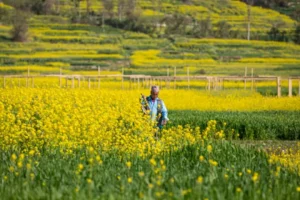The delay in the arrival of monsoon is unlikely to impact sowing of Kharif crops if rains continue in the coming weeks. Sowing of grains including rice, ragi millet apart from soyabean and pulses has begun as per schedule, farmers organisations said. Importantly, this would have implications on India’s food security.
However, the monsoon pattern in the next few weeks will be crucial as well. Though prices of certain food items have risen by about 5 to 15 per cent due to the delay in monsoon, with rains covering most of the country, there is no cause for alarm. A report by the State Bank of India indicated that with monsoons progressing well, inflation based on consumer price index for June is expected to remain low.
“The delay in monsoon is nothing new..it has happened several times in the past as well. As of now there is no concern, sowing of crops has just started and till mid July, if the rains hold, we would not have to worry,” Anil Ghanwat, senior leader of Shetkari Sangathana, a Maharashtra based farmers union told India Narrative. The kharif or the summer crops are typically harvested in October.
About 60 per cent of the rice sowing in India takes place during the Kharif season. The remaining production of rice takes place during the Rabi cycle in the winter months. This year millet sowing has expanded considerably.
According to India Meteorological Department monsoon has already covered 80 per cent of India until now. The State Bank of India’s Monsoon Impact Index released today noted that even though on an overall basis monsoon is deficient, the cereal producing states have received adequate rainfall this year compared to the previous year.
“We are keeping a close watch on the monsoon development. While there is no need to press the alarm bell at this point, we need to understand that India is better prepared to handle an adverse situation with more than sufficient buffer stocks,” a senior government official told India Narrative.
In the July to June period of 2022-23– the country’s crop year, food grain production rose 5 per cent to a record 330.53 million tonnes driven by increased output of rice, wheat, soybean, maize, rapeseed, mustard and sugarcane.
Also read: Global South can follow India’s lead to tackle food security and climate change: PM Modi



















